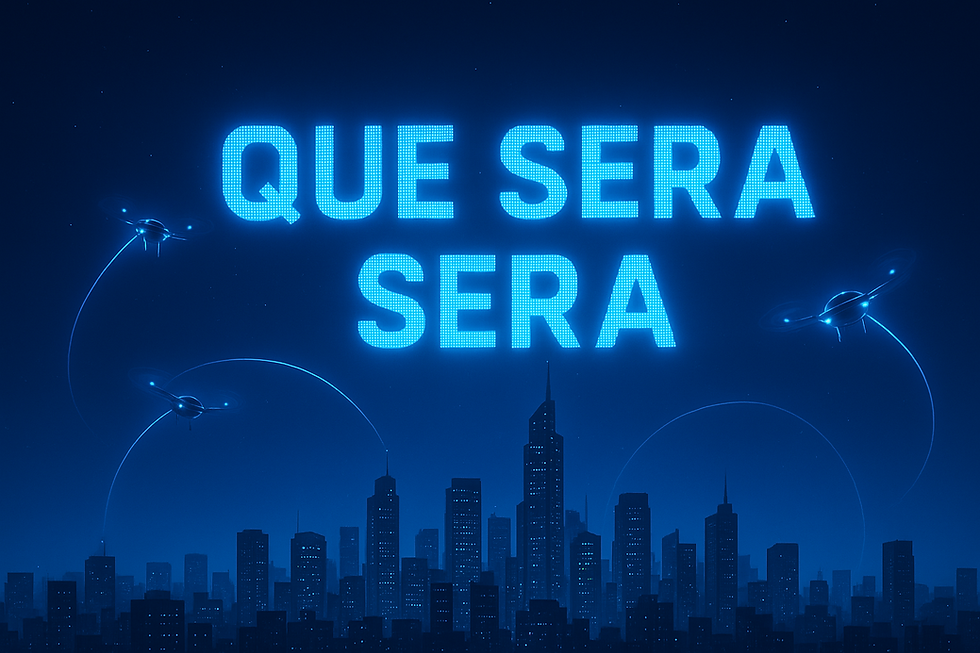The Future of AI Talent: From Specialized Skills to Systemic Thinking
- Vidya Patil
- Aug 25, 2025
- 3 min read
How AI roles, skills, and careers will transform in the next five years
The AI industry is evolving at lightning speed. Based on comprehensive analysis of leading firms’ hiring patterns and the broader tech landscape, we can predict the future of AI talent not as a snapshot in time, but as the foundation of a major shift in how AI products are designed, developed, and deployed.

Why AI Talent Is Moving from Specialized Skills to Systemic Thinking
“The value is shifting from mastering individual components to orchestrating entire AI ecosystems.”
Over the next five years, AI careers will move away from siloed expertise and toward integrated, systemic roles. The value will shift from mastering individual components like training a single model to orchestrating complex AI ecosystems where multiple agents, data streams, and human inputs converge.
This transformation will create:
New hybrid job roles in AI and machine learning
Cross-disciplinary skills combining technical depth and creative insight
Greater demand for strategic thinkers who can design and integrate full AI workflows
The Evolution of Core Technical Roles in AI
From AI Engineer to AI Systems Architect
The “AI Engineer” of today, who builds applications using frameworks like LangChain, is just the starting point. The future will require AI Systems Architects who design, orchestrate, and debug complex, multi-agent systems.
“The AI Systems Architect will design the nervous system that enables autonomous agents to collaborate effectively.”
Key skills for AI Systems Architects:
Proficiency in Python and leading ML frameworks
Expertise in real-time communication infrastructure (e.g., LiveKit)
Advanced data pipeline design and optimization
Knowledge of specialized models like Cartesia (low-latency speech) and Mixedbread (retrieval)
The Rise of the Full-Stack AI Professional
The line between research and application is disappearing. The most valuable AI professionals will have end-to-end visibility across the AI stack from hardware performance to user experience.
“Full-stack AI professionals will influence outcomes at every layer of the AI lifecycle.”
What full-stack AI knowledge looks like:
Understanding how model architectures (e.g., Mistral’s open weights, Cartesia’s State Space Models) affect latency, cost, and flexibility
Ability to make impactful decisions at every layer of the AI lifecycle
The AI Integration Specialist: Connecting Best-in-Class Tools
As companies increasingly use specialized solutions for voice, video, and search, AI Integration Specialists will play a crucial role.
Responsibilities include:
Mastering APIs, data security, and enterprise deployment
Integrating services from ElevenLabs, Fal.ai, Julius AI, and others
Building cohesive AI systems inside enterprise technology stacks
Emerging Hybrid Roles in AI
Creative Technologist: Where Art Meets AI
In generative AI and media, “taste” will become a formal job skill. Companies like Suno, Pika, and Udio are already hiring for professionals who combine:
Deep expertise in music, film, or other creative domains
Fluency in prompting, fine-tuning, and editing AI tools
A strong aesthetic vision to guide AI-generated content
AI Product and Ethics Manager
As AI agents gain autonomy, product managers will need to embed governance and ethics into the product roadmap.
“Governance and ethics will become core competencies for AI product managers.”
Key responsibilities:
Defining AI rules of engagement
Mitigating risks of bias and unintended consequences
Aligning ethical frameworks with design and engineering
Human-AI Interaction Designer
Tools like Cursor and Devin are replacing traditional GUIs with dialogue-driven user experiences.
Specialized skills:
Designing conversational flows
Shaping the tone and “personality” of AI teammates
Building trust, empathy, and collaboration into autonomous systems
This role draws more from psychology and linguistics than traditional interface design.
The New Hierarchy of AI Skills
From Prompt Engineering to Agentic Design
“Prompt engineering is becoming table stakes, the next frontier is Agentic Design.”
Basic prompt writing is becoming a baseline skill. The future lies in Agentic Design the ability to architect goals, tools, and feedback loops for multi-agent AI systems.This represents a shift from single command execution to orchestrating autonomous workflows.
Strategic Reasoning as the Core Human Competency
As AI takes care of the “how,” human leaders will focus on defining the “what” and “why.”
Top AI leaders will excel at:
Decomposing complex business problems
Converting them into actionable AI workflows
Balancing automation, efficiency, and ethical considerations
Lifelong Learning: The Survival Skill in AI Careers
With technical knowledge evolving rapidly, the most resilient AI professionals will develop a growth mindset.
“The ability to learn how to learn is the ultimate meta-skill in an AI-driven job market.”
Key traits include:
Continuous experimentation
Adaptability to new frameworks and paradigms
Meta-learning: the ability to learn how to learn in an AI-first world
The next wave of AI talent won’t be defined by narrow specialization but by the ability to think systemically, work across disciplines, and adapt continuously.
As AI ecosystems grow more complex, those who can orchestrate this complexity with clarity, creativity, and strategic vision will lead the way.




Comments